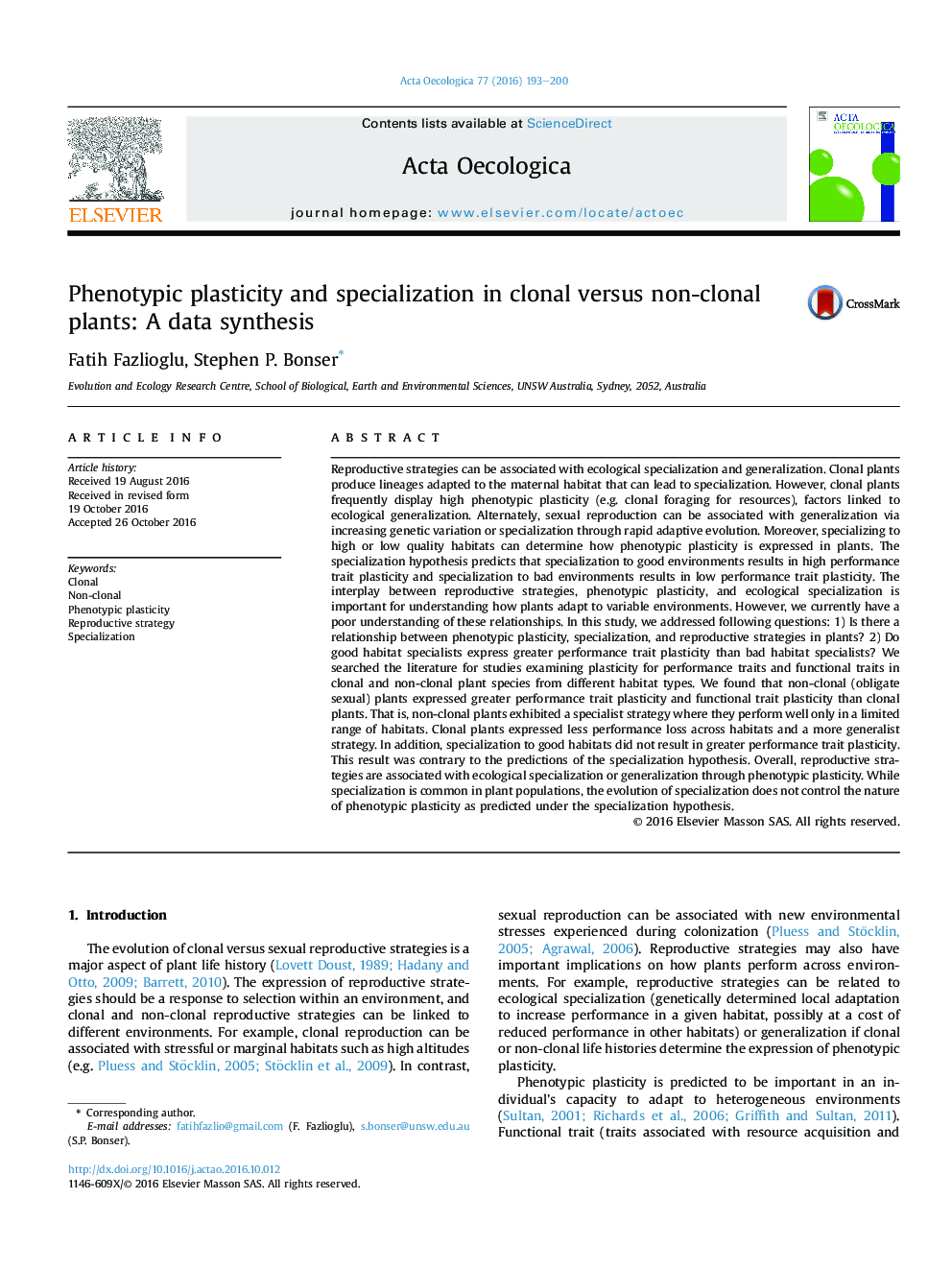| Article ID | Journal | Published Year | Pages | File Type |
|---|---|---|---|---|
| 8846558 | Acta Oecologica | 2016 | 8 Pages |
Abstract
Reproductive strategies can be associated with ecological specialization and generalization. Clonal plants produce lineages adapted to the maternal habitat that can lead to specialization. However, clonal plants frequently display high phenotypic plasticity (e.g. clonal foraging for resources), factors linked to ecological generalization. Alternately, sexual reproduction can be associated with generalization via increasing genetic variation or specialization through rapid adaptive evolution. Moreover, specializing to high or low quality habitats can determine how phenotypic plasticity is expressed in plants. The specialization hypothesis predicts that specialization to good environments results in high performance trait plasticity and specialization to bad environments results in low performance trait plasticity. The interplay between reproductive strategies, phenotypic plasticity, and ecological specialization is important for understanding how plants adapt to variable environments. However, we currently have a poor understanding of these relationships. In this study, we addressed following questions: 1) Is there a relationship between phenotypic plasticity, specialization, and reproductive strategies in plants? 2) Do good habitat specialists express greater performance trait plasticity than bad habitat specialists? We searched the literature for studies examining plasticity for performance traits and functional traits in clonal and non-clonal plant species from different habitat types. We found that non-clonal (obligate sexual) plants expressed greater performance trait plasticity and functional trait plasticity than clonal plants. That is, non-clonal plants exhibited a specialist strategy where they perform well only in a limited range of habitats. Clonal plants expressed less performance loss across habitats and a more generalist strategy. In addition, specialization to good habitats did not result in greater performance trait plasticity. This result was contrary to the predictions of the specialization hypothesis. Overall, reproductive strategies are associated with ecological specialization or generalization through phenotypic plasticity. While specialization is common in plant populations, the evolution of specialization does not control the nature of phenotypic plasticity as predicted under the specialization hypothesis.
Related Topics
Life Sciences
Agricultural and Biological Sciences
Ecology, Evolution, Behavior and Systematics
Authors
Fatih Fazlioglu, Stephen P. Bonser,
